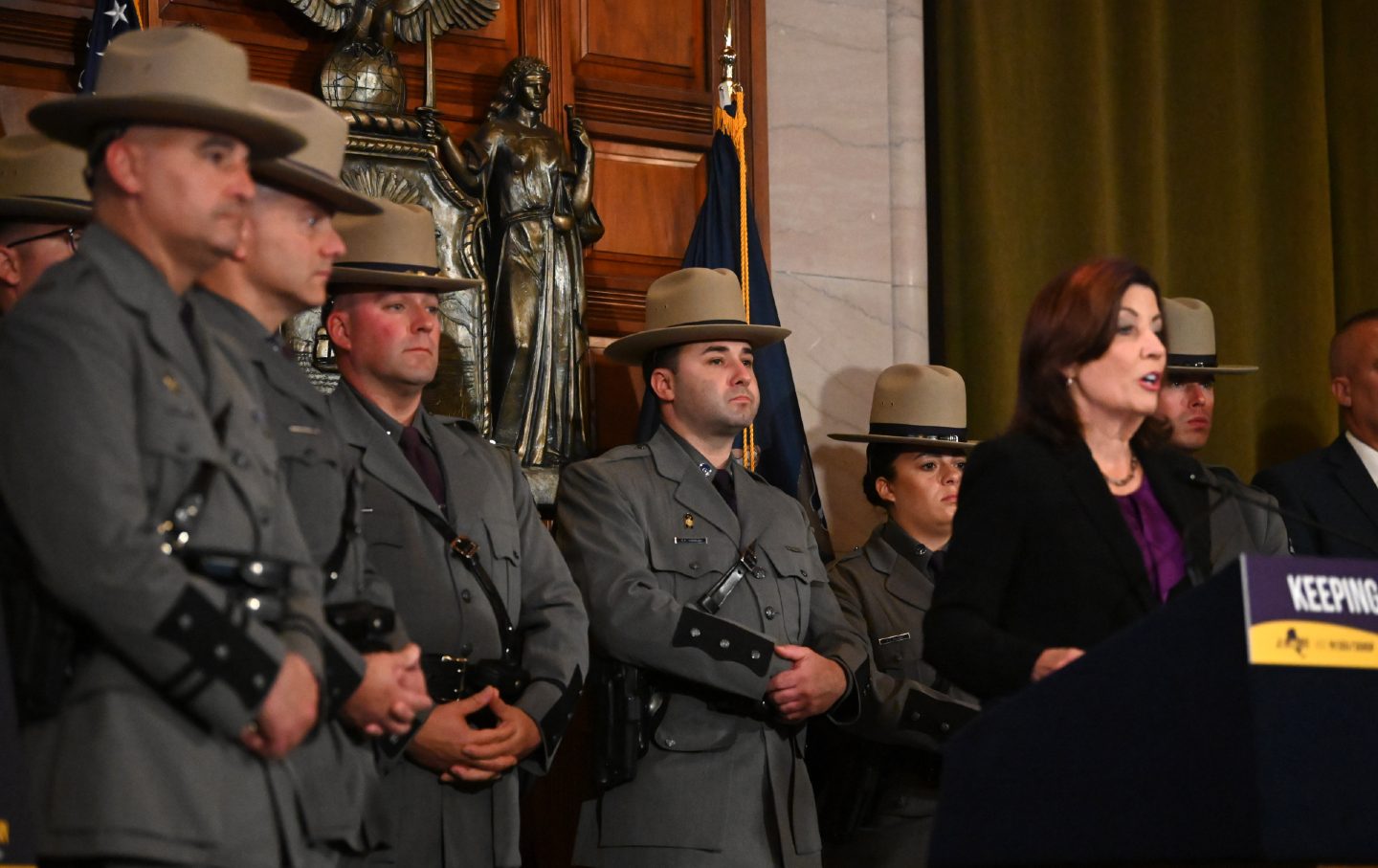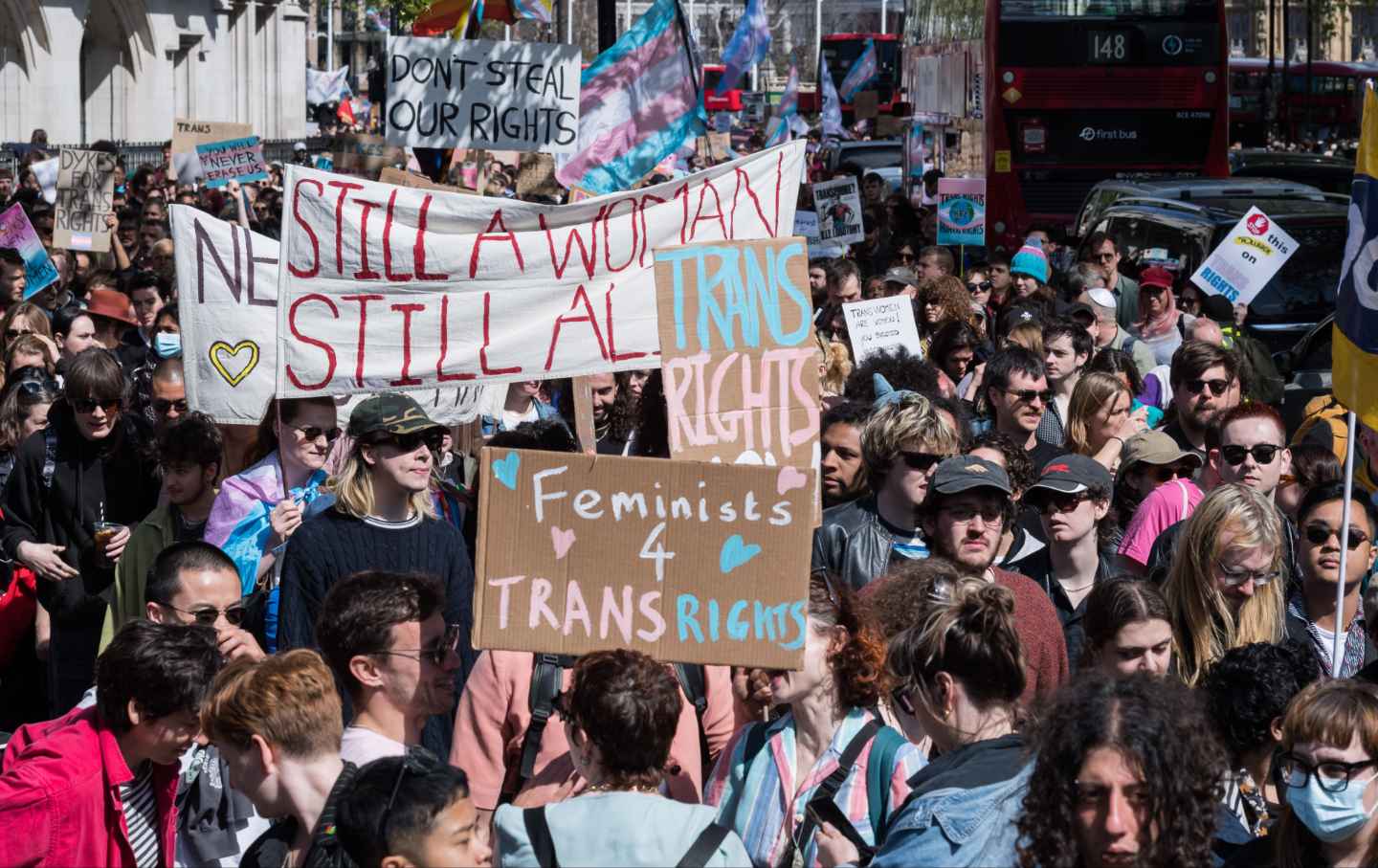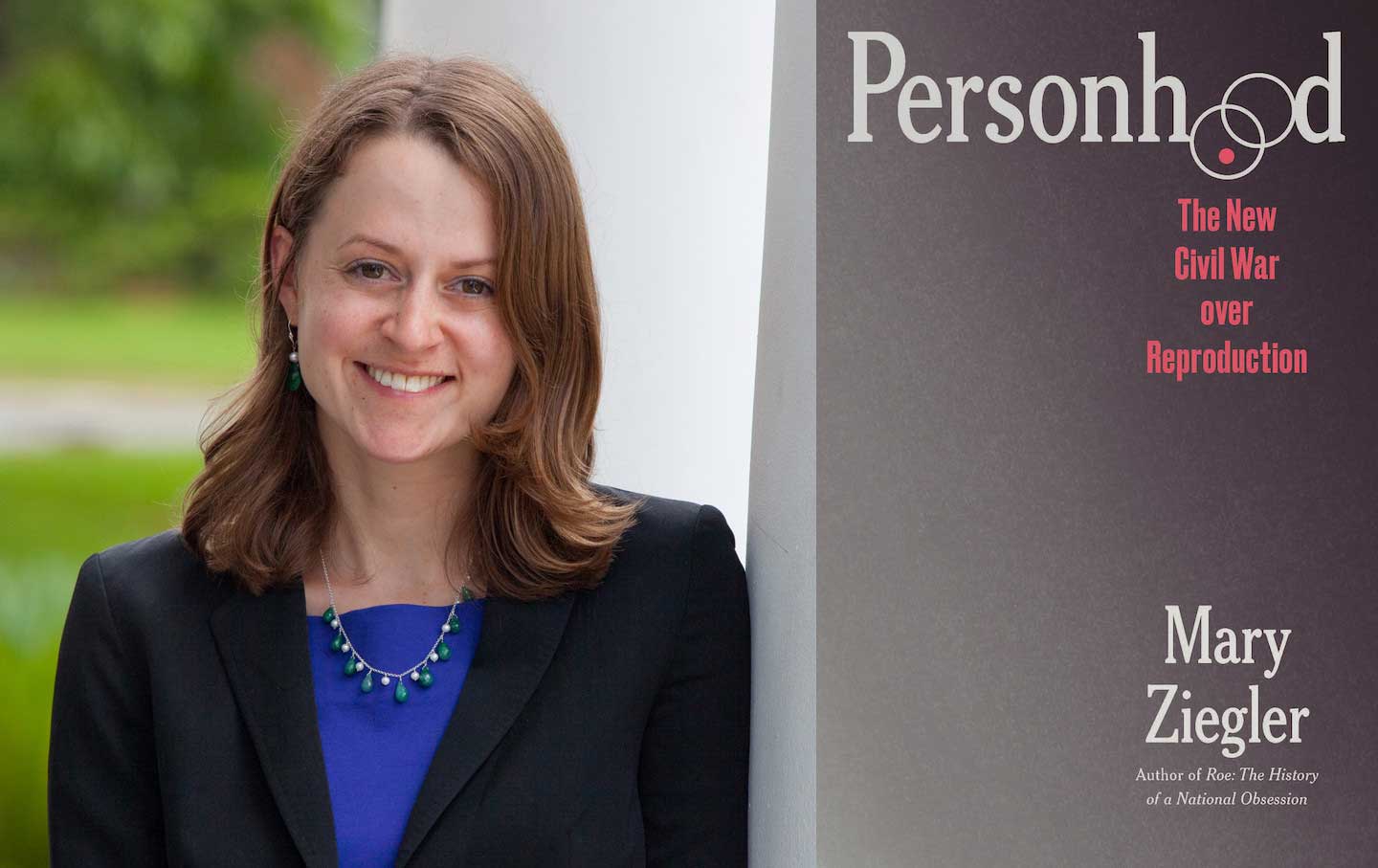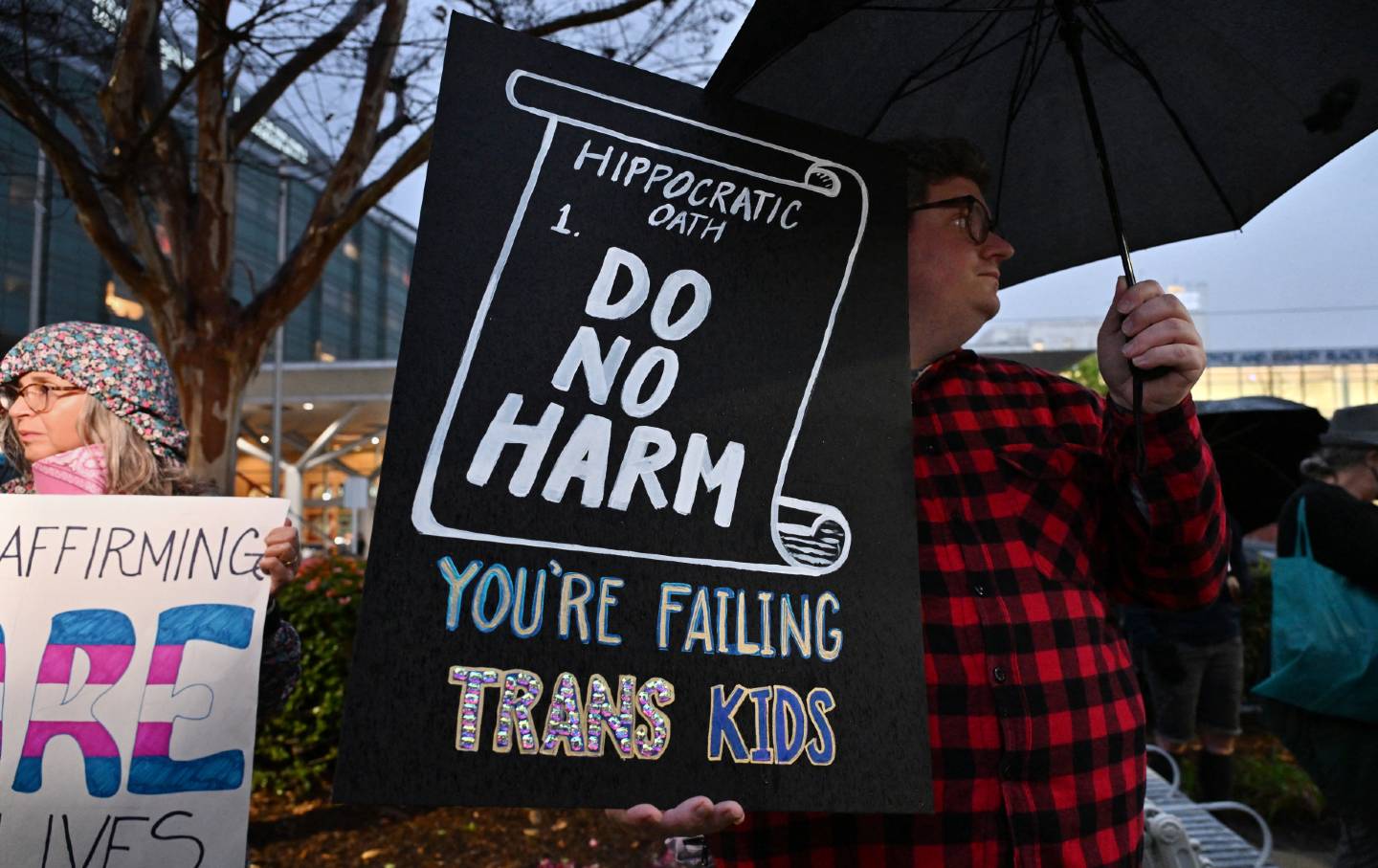How Anti–Sex Work Legislation Is About to Get Worse
FOSTA-SESTA made sex workers less safe and the Internet less free. A spate of new laws is deepening the damage.
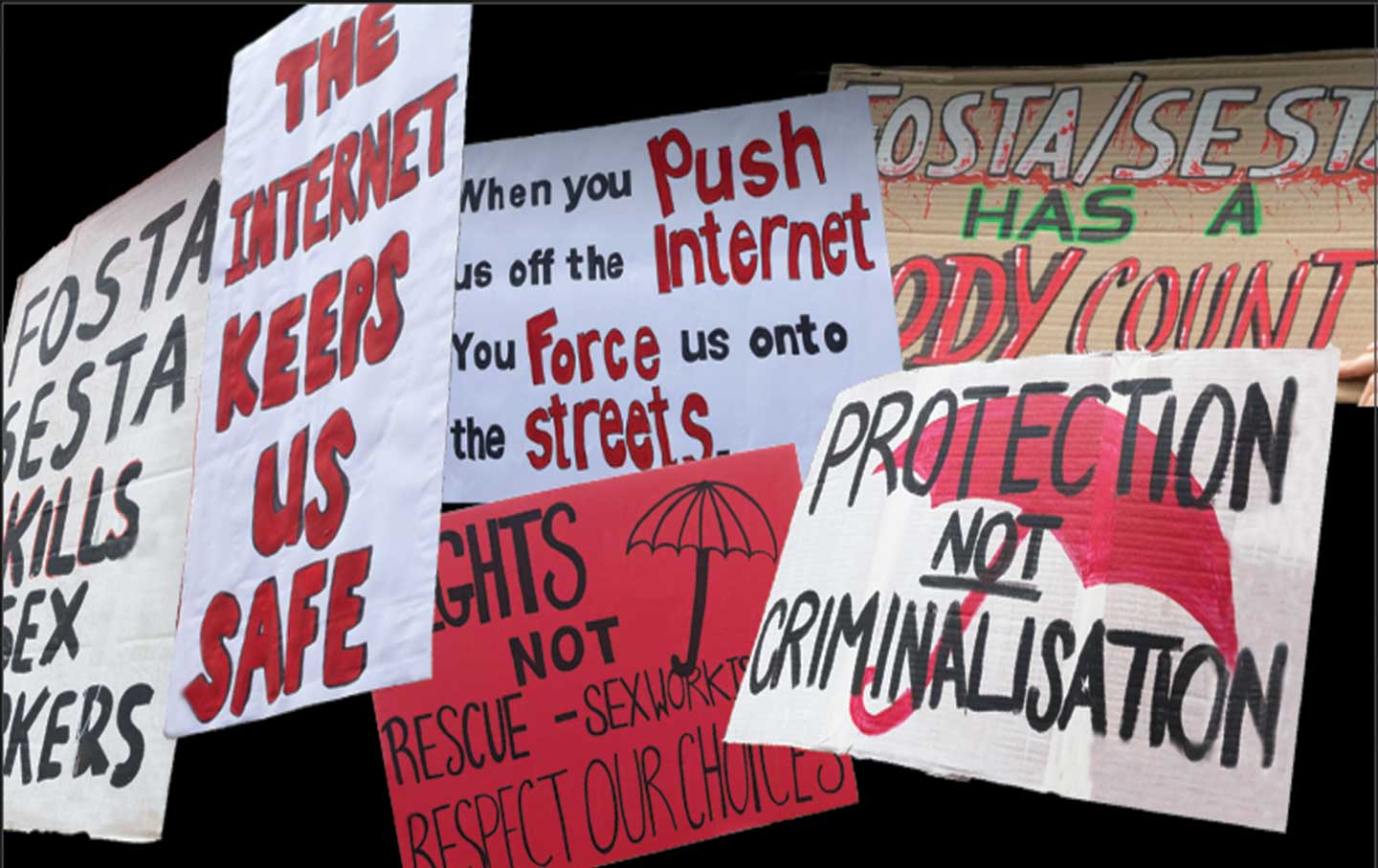
In April of 2018, when Donald Trump signed the Allow States and Victims to Fight Online Sex Trafficking Act, sex workers and civil liberties groups sounded the alarm. The legislation—known as FOSTA-SESTA because it incorporated parts of the Stop Enabling Sex Traffickers Act—rescinded legal immunity, previously granted by Section 230 of the Communications Decency Act, for online platforms that host content that “promotes or facilitates prostitution.” The legislation was sold to Congress and the public as a way of holding websites accountable for sex trafficking (in a celebrity-studded PSA, the comedian Amy Schumer declared that “buy[ing] a child for sex” is “as easy as ordering a pizza”), and it found support across the political spectrum. But from the beginning, trafficking survivors themselves warned that FOSTA-SESTA would endanger voluntary sex workers and restrict free expression on the Internet. Along with LGBTQ groups, they argued that the law wouldn’t address the root causes of child trafficking (such as poverty and youth homelessness) and were worried that it would scare website operators into censoring unrelated sexual content.
From the outset, there was ample warning about FOSTA-SESTA, even if the law had noble intentions. The Justice Department raised objections before it even passed, concerned that its language extended beyond trafficking to cover “commercial sex transactions involving consenting adults,” which was of “minimal federal interest.” Freedom Network USA, the largest national organization of anti-trafficking social service providers and advocates, also opposed this aspect of the legislation, stating that “further criminalizing consensual commercial sex work, where there is no force, fraud or coercion, is no way to protect victims.” (Sex trafficking survivors typically favor prevention strategies that are structural in nature, like affordable housing, universal basic income, a living wage, and the expunging of criminal records.) Concerned with the threat of censorship, the ACLU warned that the law posed a “real and significant” risk to the “vibrancy of the Internet as a driver of political, artistic, and commercial communication.” But all of these considerations went unheeded, and FOSTA-SESTA sailed through Congress.
Now, five years later, reports from legal scholars, researchers, and the Government Accountability Office conclude that the law has been counterproductive at best and deadly at worst, confirming the early fears. Accurate data on sex trafficking is notoriously elusive, but by most accounts, online sex trafficking remains rampant; its facilitation has simply moved overseas or underground, where law enforcement cannot subpoena the information needed to apprehend perpetrators or locate and aid victims. A 2022 study by the Rhode Island chapter of the sex worker advocacy group COYOTE revealed that 64 percent of trafficking survivors in the sex trade have experienced an increase in force or coercion since the law took effect, making its “real world effects…completely contrary to its stated intent.” As attorney Emily Morgan observed in The Northwestern Law Review, citing the work of legal scholar A.F. Levy, FOSTA-SESTA—in failing “to provide real relief to its intended beneficiaries”—amounts to a form of “pageantry.” To date, there has been just one criminal conviction under the law. A group of free speech advocacy and human rights organizations recently sued to overturn FOSTA-SESTA on First Amendment grounds. In July, the D.C. Circuit Court of Appeals upheld it but clarified and limited its far-reaching scope; whether this change will restore censored content and undo five years of damage remains to be seen.
Unfortunately, the vindication of FOSTA-SESTA’s critics has not stopped lobbyists and politicians from implementing more ways to censor sexual speech online. The unlikely ideological alliance of anti-sex-work feminists, religious fundamentalists, and modern-day Anthony Comstocks has existed since at least the 1980s, when radical feminists joined forces with right-wing conservatives to praise the findings of Ronald Reagan’s Meese Commission on Pornography. Today, they stoke the flames of a moral panic that conflates a range of commercial adult-oriented services with abuse. In this war against putative commercial sexual exploitation and child endangerment, the erosion of sex workers’ rights and freedom of speech has been collateral damage.
Sex workers have meticulously documented the ways that FOSTA-SESTA has jeopardized their safety. The worker collective Hacking//Hustling conducted peer-led research on the impact of the law 18 months after it was signed. Using online surveys and personal interviews with a range of sex workers in varying circumstances, it found that FOSTA-SESTA severely curtailed their ability to work indoors, work independently, and share support or harm-reduction resources (such as “bad date” blacklists and free health services) with their communities. With their ability to find and screen clients online restricted, some reported turning to pimps or other predatory third parties and engaging in street-based work, which is exponentially more dangerous. The passage of FOSTA-SESTA and the ensuing loss of advertising sites have resulted in an overall increase in economic instability and in violence from clients.
In addition to these significant material harms, the law has had a chilling effect on online speech for everyone. To avoid serious criminal and civil liabilities, many websites and apps now overregulate all erotic material—much of which is unrelated to sex work. In the immediate wake of FOSTA-SESTA, risk-averse platform operators removed a wide array of content related to human sexuality. According to the Woodhull Freedom Foundation and the Electronic Frontier Foundation, organizations that track sexual and online censorship, respectively, FOSTA-SESTA has led to the elimination of age-appropriate sexual health and education resources, and it remains unclear whether the recent Circuit Court ruling can or will restore them. Materials that refer to “sexual pleasure,” reproductive organs, or slang terms for body parts have been censored on social media platforms and e-mail services, as have advertisements for sex toys, sex counselors, and at least one licensed massage therapist. Facebook, Tumblr, Reddit, and Instagram now strictly limit the type of language and images that users can post, while Craigslist removed its entire personals section in response to the law.
The fate of Craigslist’s personals section exemplifies how FOSTA-SESTA incentivizes the restriction of legal—and often anodyne—content. The website once included an assortment of classified ads for various types of unpaid encounters (popular subsections included “misc romance,” “strictly platonic,” and “women seeking women”) as well as those for paid sex placed by independent workers unassociated with brothels or the kind of managed erotic labor much more prone to exploitation. But the finer points of distinction between different types of dating or sex ads didn’t matter under the broad scope of the legislation as originally written. “Owning or managing an online platform while allowing any content that makes prostitution easier constitutes a federal felony,” says Lawrence Walters, the attorney who helped argue the challenge to the law in the D.C. Circuit Court. “If more than five people are involved, the act becomes an aggravated offense subjecting the platform operator to up to 25 years in federal prison.” It’s no wonder, then, that sites like Craigslist opted to delete entire sections rather than painstakingly analyze hundreds of individual posts per day. The consequence is an online landscape in which an attempt to find the cute stranger you locked eyes with at last week’s farmers market is treated the same way as an act of digital pimping.
While FOSTA-SESTA was sold as a narrow carve-out of Section 230, the response by websites, social media platforms, and dating apps has affected everyone who is active online. By using the wrong word or getting swept up by the wrong algorithm—or even by posting certain emojis that platforms like Instagram arbitrarily associate with prostitution—anyone can lose their account or find their profile hidden, something that has happened so frequently it now has a name: “shadowbanning.” Apps like Tinder and Bumble often permanently disable the accounts of users suspected of solicitation, with no explanation. “Whether you know it or not,” says Mike Stabile, the director of public affairs at the Free Speech Coalition, “you’re being monitored for potential flags.” And being flagged under these opaque moderation policies “operates a little bit like a no-fly list, where there’s not a whole lot of understanding of how you got on it, and certainly no guide to getting off of it.” People whose profiles include erotic imagery or language for artistic or educational purposes often find it impossible not to run afoul of anti-sex algorithms, repeatedly having to appeal their bans or else make new accounts from scratch. As it turns out, Stabile says, there’s no way to patrol sex workers without also “encouraging surveillance of people’s sexuality” more broadly.
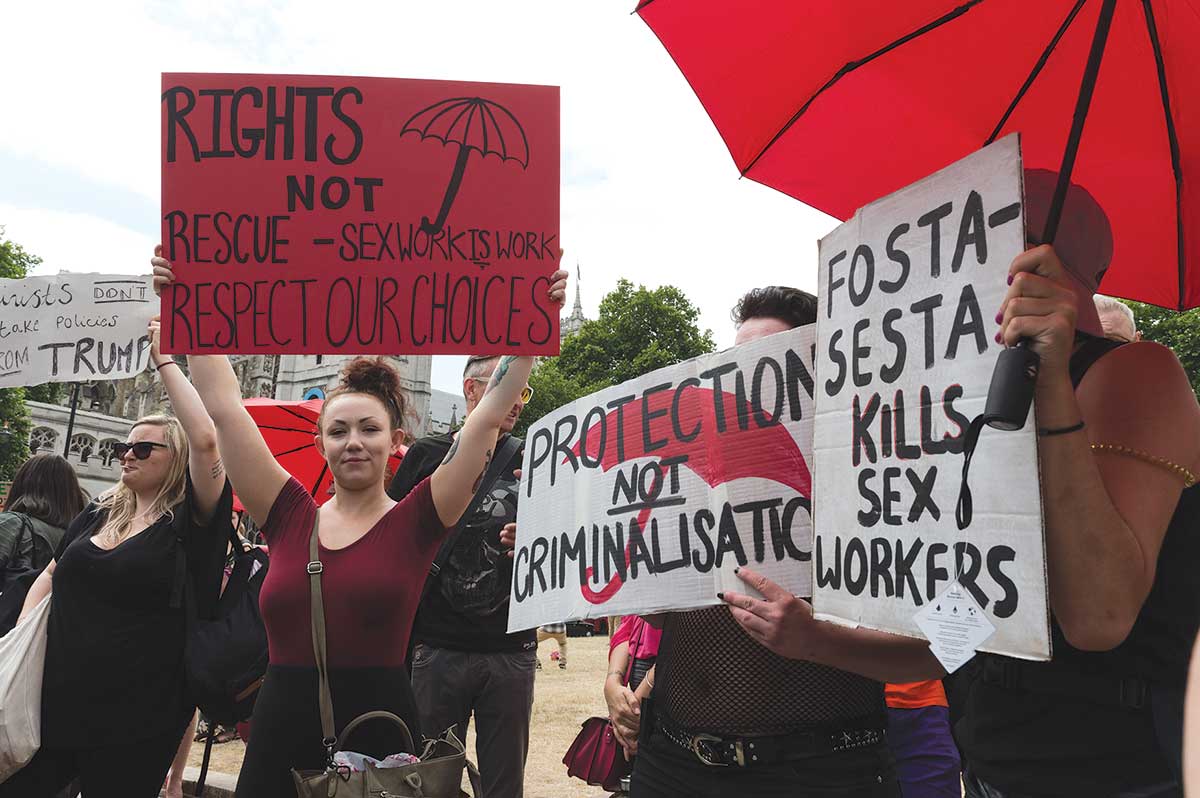
We may be doomed to repeat the mistakes of the past, forfeiting free adult expression and privacy in exchange for the illusion of curtailing bad actors and keeping children safe. Some elements of FOSTA-SESTA may have been defanged in court, but several new invasive anti-pornography bills at the state level have been gaining momentum over the past few months, largely under the media’s radar. Recently passed “age-verification system” (AVS) bills in Arkansas, Louisiana, Mississippi, Montana, Texas, Utah, and Virginia now require anyone who visits a pornographic website to prove they are over 18 by uploading their personal identification documents, allowing the sites (and sometimes third-party vendors) to compile and maintain a registry of pornography viewers and their biometric data.
While the idea of reducing children’s access to adult content may be eminently reasonable, it’s unclear whether the AVS laws will work as designed, even as they dramatically increase the reach of state surveillance. Daly Barnett, a technologist at the Electronic Frontier Foundation, calls them “a security nightmare” for “entrusting different third parties with highly sensitive information” and relying on facial recognition software that “can identify people across vast networks and store that information for further use by law enforcement or federal agencies.” It’s not difficult to imagine scenarios in which this personal data could be hacked, leaked, or used for nefarious purposes.
The AVS laws also target content that is, at least for now, fully legal—even if some people find it distasteful or unworthy of defending. Historically, Internet speech has been entitled to heightened First Amendment protections: In 1997, the Supreme Court ruled that an attempt to shield children from online pornography was unconstitutional because it could also silence “nonobscene” speech created for adults. (FOSTA-SESTA was able to get around this by offloading the burden of censorship onto platform providers, as Congress for the most part cannot directly censor speech based on content.) Civil liberties lawyers see the new crop of bills as placing an unreasonable burden on adults accessing legal material in the privacy of their own homes. The Free Speech Coalition has already challenged AVS legislation in multiple states on these grounds; while its suit in Utah was dismissed, a federal judge in Texas blocked the state’s law, explaining that it “will allow the government to peer into the most intimate and personal aspects of people’s lives.” But the laws have already dramatically reduced visits to adult sites, and major platforms like Pornhub have stopped operating entirely in four states. According to Politico, by 2024, around 54 million Americans will live in states that require them to upload their identification to view pornography.
Meanwhile, the writers of these bills, Stabile says, have a “very, very expansive idea of what pornography is,” including anything “harmful to minors.” It’s a subjective standard that applies not only to “hard-core” content but also to nude images like the kind formerly found in Playboy, cartoons and illustrations, and, potentially, inexplicit LGBTQ material. Kendra Albert, an instructor at the Cyberlaw Clinic at Harvard Law School, points out that “obscenity statutes in the United States have been used to disproportionately harm those with marginalized sexualities,” and the current crackdown on queer-themed books in school libraries suggests that all of these efforts are related. In some states, the standards governing what constitutes harmful sexual material have recently expanded in the school library setting to include books like Ulysses, The Catcher in the Rye, and The Color Purple (flagged for removal by schools in Iowa), and an illustrated version of Anne Frank’s diary (banned in some Texas and Florida schools). Florida’s Parental Rights in Education bill (also known as the “Don’t Say Gay” law), sold as an attempt to shield children from hard-core pornography, is now being used to investigate a teacher who showed students a Disney movie. The vague language of the AVS laws, especially in an increasingly polarized cultural climate, makes it difficult to predict what they may end up applying to in the future. Stabile cautions that “we need to understand these bills in the larger scope of a censorious push…to stop conversations about sex, to push sex and sexuality back into the closet.”
Popular
“swipe left below to view more authors”Swipe →The ongoing struggle to “childproof” the Internet opens the door to what legal scholars call “carceral creep,” meaning that more kinds of online speech are liable to become gradually criminalized over time. If anti-porn crusaders have an endgame, says Savannah Sly, a codirector of the sex worker advocacy group New Moon Network, it’s “to eradicate all sexual and erotic media, even stuff that isn’t designed for the purpose of titillation or entertainment.” What constitutes obscenity (a category of “patently offensive” speech that the government can restrict) is famously in the eye of the beholder, and the various pundits and policymakers who see porn as a “public health crisis” hope to expand its definition. Last year, Senator Mike Lee (R-UT) introduced legislation that would classify all online pornography as obscenity, thereby banning it nationwide. Lee’s bill is unlikely to pass, but the state-by-state AVS strategy may eventually have a similar impact if more states adopt such bills and adult websites continue to block users on that basis. The accessibility of porn may not seem like an urgent matter amid other current political concerns—and we can easily critique the labor conditions and balance of power within the industry itself—but safeguarding freedom of speech inevitably includes even the most contested material. These restrictions risk inuring us to trading personal privacy for the fantasy that we can fully control what minors see online.
The censorious movements behind AVS legislation are well-organized and have not been met with serious political opposition. This is likely due to how divisive the subject of sex work is in general (though it’s a large umbrella, covering everything from pornography and stripping to commercial fetish work and escort services). There are factions of the left that see some or all forms of sex work as so uniquely exploitative that they welcome any state intervention, even if it takes the form of indiscriminate surveillance or risks criminalizing benign behavior. FOSTA-SESTA was a bipartisan effort from day one, passing with the votes of even progressive Democratic mainstays. Senator Elizabeth Warren (D-MA) apparently regrets her vote and, along with Representative Ro Khanna (D-CA), introduced a bill to study the law’s impact—a gesture that registers as too little, too late. It was Vice President Kamala Harris, in her days as California’s attorney general, who led the state’s 2016 crusade against the advertising site Backpage, claiming that her investigation would “protect thousands of victims of trafficking.” (The website was shut down by the government in 2018, and the company did indeed plead guilty to human trafficking in Texas just days after its seizure. However, a separate case against the website’s executives notably does not include charges of sex trafficking, and in internal Justice Department communications, the company was described as being “remarkably responsive to law enforcement requests and often [took] proactive steps to assist in investigations.”)
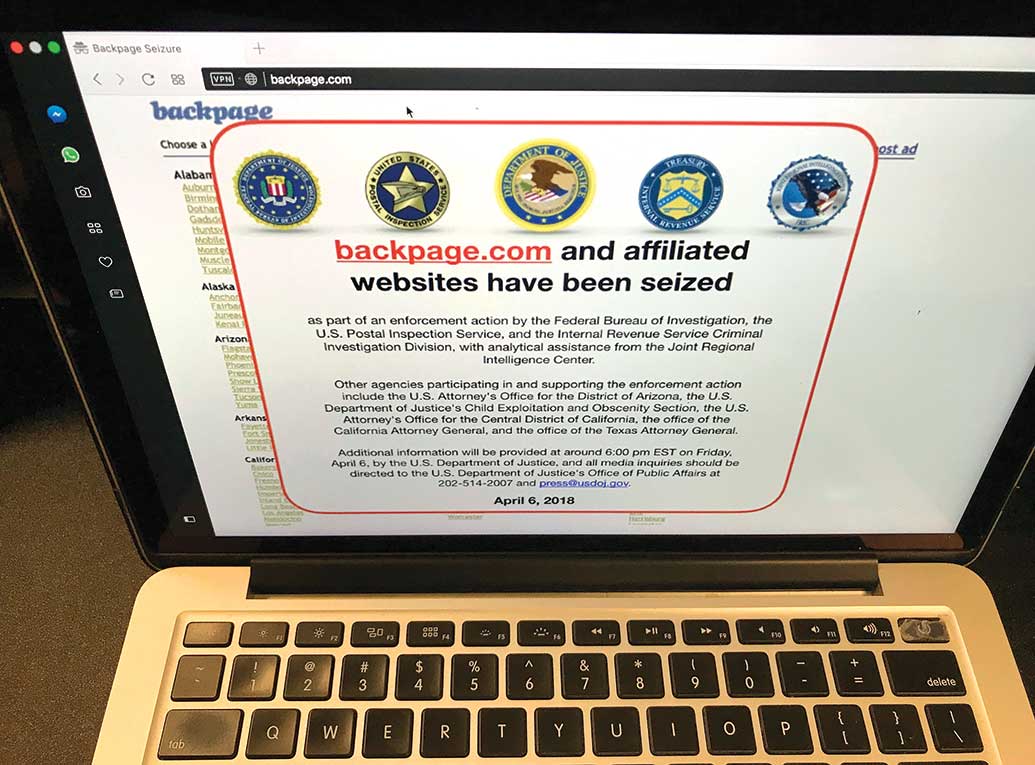
Nicholas Kristof and Sheelah Kolhatkar have published articles in The New York Times and The New Yorker, respectively, that uncritically accept the anti-porn narratives of two conservative groups, Exodus Cry and the National Center on Sexual Exploitation. These groups have made censorship more palatable to progressives by obscuring their religious motives, depicting themselves as advocates for victimized women and children and ditching the fusty language of “decency” and “morality.” NCOSE is a rebrand of the faith-based, anti-LGBTQ organization Morality in Media, whose members famously targeted the comedian George Carlin in the 1970s for his “Seven Words You Can Never Say on Television” routine. Today, NCOSE uses the rhetoric of child endangerment to sow disgust and panic, which it hopes to leverage to pass a blanket ban on all sexually explicit material. Exodus Cry emerged out of a right-wing evangelical ministry, the International House of Prayer, although it currently denies any formal association with the group. Both Exodus Cry and NCOSE know how to harness contemporary fears about the impacts of new technology and social media on young people, and they’re working hard to convince lawmakers that only a hyper-sanitized Internet can shield women and children from victimization.
By using lurid anecdotes of child abuse and violence against women while ignoring the perspectives of consenting sex workers, Kristof has legitimized this agenda. He encouraged the credit card companies Visa and Mastercard to sever ties with adult websites, a move that may have helped reduce the flow of cash to bad actors but also resulted in the loss of income for sex workers who produce legal content. Kristof’s rhetoric helped increase financial discrimination against a precarious class of workers and pave the way for private, for-profit entities to become de facto gatekeepers of online speech. He may not consider himself an ally of the right, but according to Sly of New Moon Network, Kristof has “taken the bait of the anti-porn, anti-trafficking campaign,” whose leading organizations and figures are aligned with conservative causes.
It’s not difficult to understand why Democrats have been supporting the new AVS laws, which have passed by overwhelming margins. It’s politically risky to be on the wrong side of the right-wing obsession with grooming and pedophilia. “You open yourself up to a charge at a time when the moral panic around children and sexuality is at a peak,” says Stabile, of the Free Speech Coalition. “There’s a sense of ‘This may be a bad bill, but who is it really gonna hurt?’ There are very few people who are ready to stand up for the rights of pornographers.”
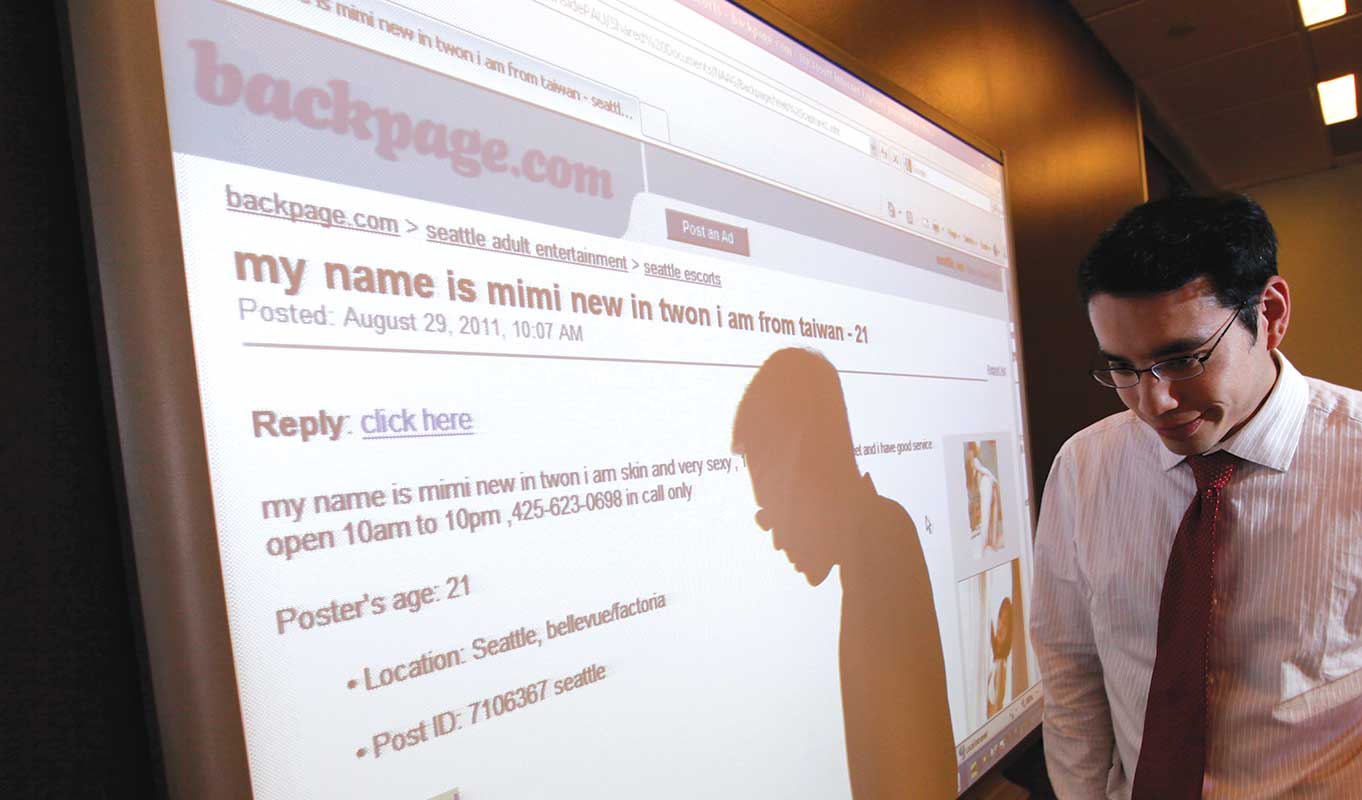
There is a distinction between defending huge companies like Pornhub, which has been deeply irresponsible with its moderation policy in the past, and defending the individuals who work as performers and independent creators of adult content. Until recently, Pornhub relied on a small number of overworked employees to watch millions of user-uploaded videos and flag them for content involving minors, which meant that some illegal, abusive material slipped through the cracks. Proponents of sex workers’ rights, like the journalist Melissa Gira Grant, find plenty to fault the company for. Writing in The New Republic, Grant lambastes Pornhub’s “tech-determinist business model that values stickiness and seamlessness over content moderation.” Many sex workers remain suspicious of the corporate behemoths that extract large profits from their work (or even outright pirate it), but, Sly says, “it’s hard for workers to speak up and hold the platforms accountable when [a few websites] are their only source of financial stability.” Safeguarding free speech and labor rights for porn actors and creators need not entail a wholesale endorsement of the industry, which operates, like every American business, in service to capital. “We can criticize McDonald’s for purchasing beef from factory farms and creating food that is unhealthy [without] making life harder for McDonald’s workers,” Sly adds. If FOSTA-SESTA had not shut down so many websites, adult performers would have more choices about where to post their content and be less reliant on the few companies that now monopolize the industry.
The consequences of FOSTA-SESTA should make us all think carefully about whom we designate as the moral arbiters of speech. Do we ultimately want an Internet that is gentrified and entirely child-friendly? “Personally,” says Sly, “I would like to take the risk of seeing stuff I don’t want to see, and have the freedom to find things I do want to see, rather than having everything safely curated for me by either state entities or a faceless third party.” The new, more tailored interpretation of FOSTA-SESTA, which clarifies that “promoting” should be understood only as “aiding and abetting,” may mute some of the chilling effects of the 2018 version. But coordinated, well-funded efforts to blacklist all sexual content persist.
Both FOSTA-SESTA and age-verification bills are part of what Morgan describes in her law review article as “a legacy of attempts by activists and lawmakers to enact laws with seemingly feminist or otherwise protective aims” that ultimately backfire by harming those with the least amount of power. The most famous of these may be Andrea Dworkin and Catharine MacKinnon’s 1980s anti-porn ordinances, which did not survive long in the United States but were weaponized against lesbian and gay booksellers in Canada via its Criminal Code on obscenity. “By discouraging speech that is outside community norms but [is] nonetheless constitutionally protected,” Morgan argues, restrictions like FOSTA-SESTA risk rendering the Internet sterile and unrecognizable.
Hold the powerful to account by supporting The Nation
The chaos and cruelty of the Trump administration reaches new lows each week.
Trump’s catastrophic “Liberation Day” has wreaked havoc on the world economy and set up yet another constitutional crisis at home. Plainclothes officers continue to abduct university students off the streets. So-called “enemy aliens” are flown abroad to a mega prison against the orders of the courts. And Signalgate promises to be the first of many incompetence scandals that expose the brutal violence at the core of the American empire.
At a time when elite universities, powerful law firms, and influential media outlets are capitulating to Trump’s intimidation, The Nation is more determined than ever before to hold the powerful to account.
In just the last month, we’ve published reporting on how Trump outsources his mass deportation agenda to other countries, exposed the administration’s appeal to obscure laws to carry out its repressive agenda, and amplified the voices of brave student activists targeted by universities.
We also continue to tell the stories of those who fight back against Trump and Musk, whether on the streets in growing protest movements, in town halls across the country, or in critical state elections—like Wisconsin’s recent state Supreme Court race—that provide a model for resisting Trumpism and prove that Musk can’t buy our democracy.
This is the journalism that matters in 2025. But we can’t do this without you. As a reader-supported publication, we rely on the support of generous donors. Please, help make our essential independent journalism possible with a donation today.
In solidarity,
The Editors
The Nation

